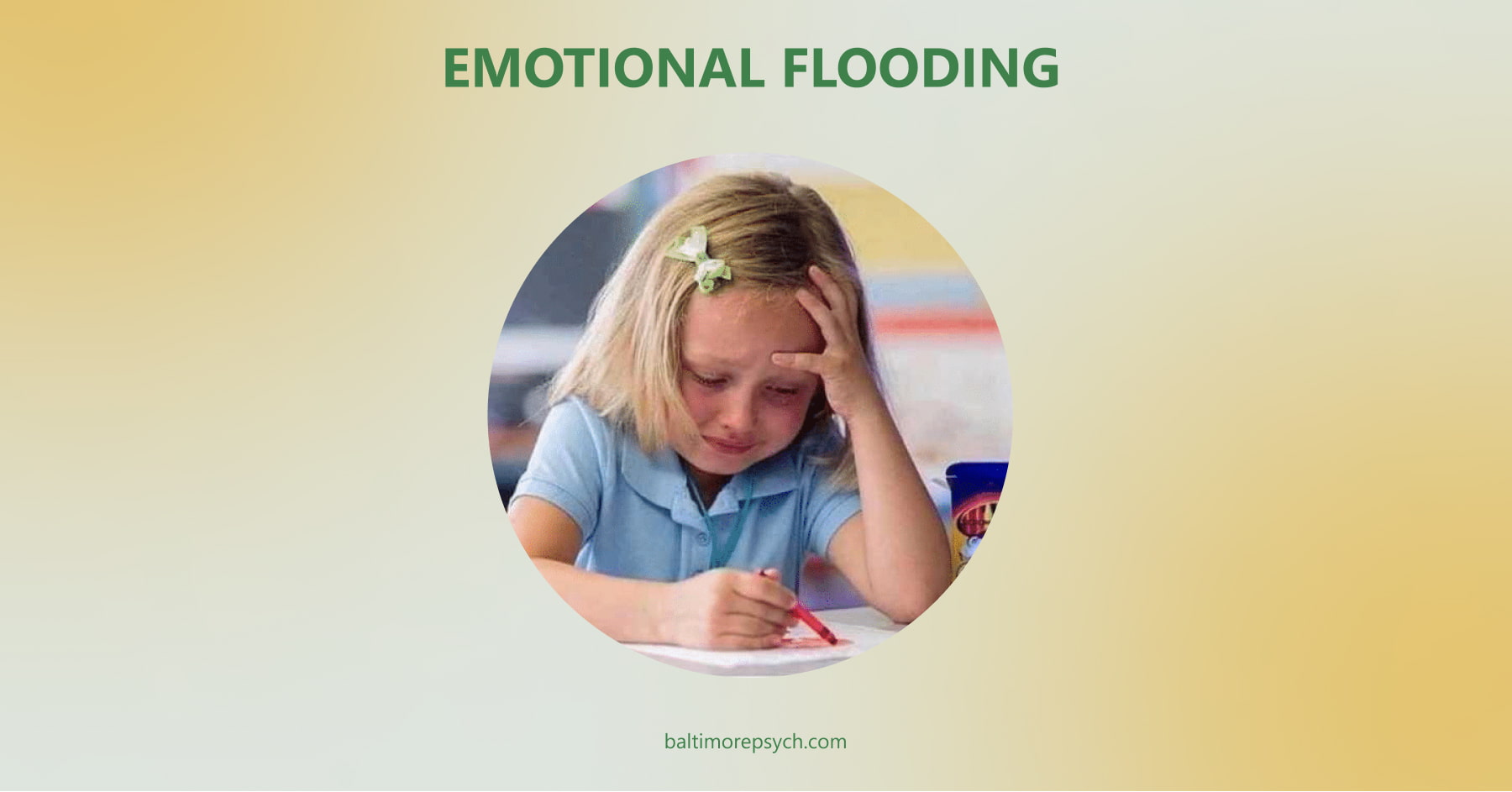Have you ever felt like you were suddenly hit with a wave of emotion, and it was so intense that you became overwhelmed? If so, then you may have experienced something called emotional flooding. Emotional flooding is when intense emotions overwhelm us and cause us to become disconnected from ourselves and our environment. Let’s take a look at what emotional flooding is, the signs of it, how to recognize it in yourself and others, and how to cope with it.
What is Emotional Flooding?
Emotional flooding occurs when we are suddenly overwhelmed by intense emotions. It can be triggered by something small or large, such as a traumatic event or even just an argument with your partner. During emotional flooding, we lose access to our logical thinking skills as our emotions take over. We may feel out of control or overwhelmed as all of these feelings come crashing down on us at once.
Signs of Emotional Flooding
When experiencing emotional flooding, there are some tell-tale signs that can help us identify it in ourselves or others. These include physical symptoms such as shortness of breath, rapid heartbeat, trembling hands or legs; mental symptoms like confusion or feeling “out of control”; and behavioral responses such as increased agitation or difficulty concentrating on tasks.
Recognizing Emotional Flooding in Yourself & Others
If you suspect that someone else is experiencing emotional flooding (or if you are experiencing it yourself), Northern County Psychiatric Associates (NCPA) suggests these steps that can be taken to recognize it and begin the process of managing it:
- First, bring awareness to the situation/feelings by naming them out loud (e.g., “I am feeling really overwhelmed right now”).
- Practice calming techniques such as deep breathing exercises or focusing on an object in the room; these will help ground you during the experience.
- Try talking through the situation with someone who can provide support and understanding (if possible).
- Use positive self-talk throughout the process to encourage yourself and remind yourself that this feeling will pass soon enough.
Emotional flooding check-up list
When emotional flooding occurs, it can be debilitating and hard to deal with. It is important to establish a mental check-up list or regular practice that helps you identify when emotional flooding happens. This way, you can prepare yourself to acknowledge the emotional flooding and take steps to overcome it. Some of these check-up steps might include asking yourself how you are feeling, assessing the current situation calmly, pausing before taking action, grounding yourself in something physical such as deep breathing, and focusing on setting realistic goals for the next few hours or days. Using this emotional flooding check-up list will help you gain perspective and allow you to regulate your emotional state more easily.
Conclusion
Emotional flooding can be a difficult experience to go through but recognizing its signs early on can help immensely in managing it effectively. By learning how to recognize emotional flooding in ourselves and others, we become better equipped to successfully cope with these intense situations – protecting ourselves from becoming overwhelmed in the process! With this knowledge at hand, we can move forward knowing how best to care for ourselves during moments of strong emotionality.

